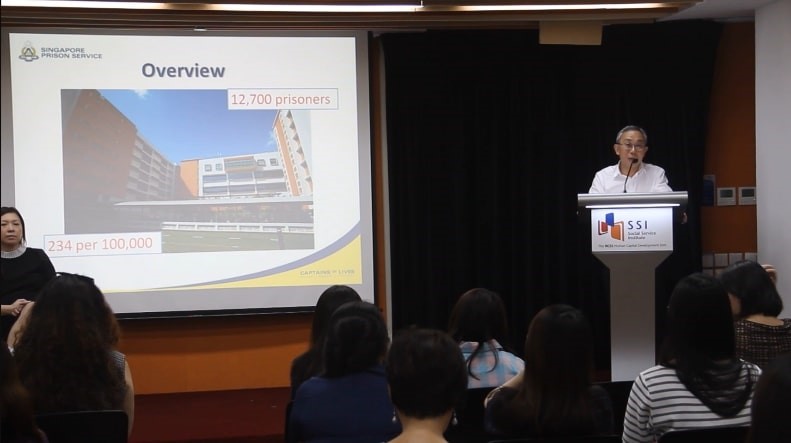Test header
Mining Deep, Scaling Heights, Session: Rehabilitation
On 27 May 2016, a team of social work trained professionals came together to share their experiences in the work of rehabilitation with their various clients, namely clients from the hospital, youth-at-risk as well as ex-offenders. The session, titled “Rehabilitation”, aimed to help participants be equipped with some helpful principles and approaches when engaging in rehabilitative work.
Speakers:
1. Ms Sharleen Siow – Medical Social Worker, Singapore General Hospital
2. Ms Elaine Loo – Director, Central Youth Guidance Office, Ministry of Social and Family Development
3. Mr Desmond Chin – Deputy Commissioner of Prisons, Singapore Prisons Service
Designations as of 27 May 2016.



What is Rehabilitation?
- To make fit again after injury or loss
- The injury could be physical, psycho-emotional, social and economic
3 Things Social Workers Should Know in Rehabilitation Work:
Relationships
- Rehabilitation happens within the context of relationships. A good relationship will give you flexibility and agility especially when dealing with a crisis situation.
- It is also important to have good relationships with other colleagues, even if they are from different professions or disciplines.
Tools
- Tools such as theoretical frameworks are very important for social workers and practitioners (e.g Bio-psycho-social model, psychosocial typology of illness, grief models, etc).
- These guides are helpful for social workers to know how to intervene and move forward in a case.
Values
- The values you possess as a social worker will shape where you go in the journey of rehabilitation with clients
Advocacy
- Advocacy takes place when clients have insufficient means or resources to negotiate decisions for their best interest.
- Some systems may not recognise the “personhood” of the users and therefore, systems may not naturally “rehabilitate” in their naturally occurring environment. Rehabilitation has to be very intentional, we cannot just leave it to the systems.
Framework for advocacy
- Cause: Why is this cause important? Why is there a need for change?
- Clarity of cause needs to be there
- Outcomes: What would you like to see happen? What is the evidence that we are not doing our work in an effective manner?
- Target audiences: Who are the people that need to change? (e.g. policy makers, staff, etc)
- Strategies and Tactics: How would the transformation come about? (e.g. training and consultation with trainers, engagement with staff, legislative changes, policy papers, etc.)
- Evaluation: How would you evaluate the effectiveness of your advocacy efforts?
Community Engagement
- Partnerships and collaborations with community based services is important. We need to think about engaging community based services earlier on – interventions should be more upstream
WHAT TO READ NEXT
- MDSH Session: The Journey of Youth Outreach in Singapore
- MDSH Session: Reflexive Collaboration Across Disciplines
- MDSH Session: KIDS 0-3: Collaborative Practice in a Trans-Disciplinary Home Visitation Programme
- MDSH Session: Approaches, Principles and Practice in Working With Persons With Disabilities
- MDSH Session: Partnering Across Disciplines: Educational Psychology and Social Work